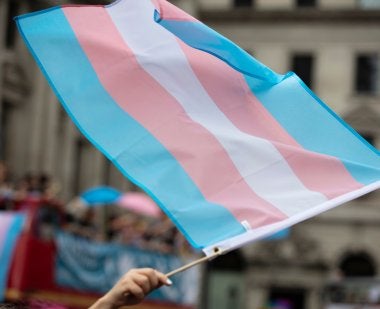
Over three-quarters of trans people in Maryland worried about being negatively judged when seeking health care and nearly a third delayed necessary treatment, according to one finding of a new study of the state’s trans population conducted in part by a University of Maryland doctoral student.
The Maryland Trans Survey, the largest of its kind ever in the state, examined a range of health care, economic, legal and discrimination experiences among 750 trans participants across all counties and Baltimore. It was conducted by the community organization Trans Maryland and the Queer/Trans Collective for Research on Equity and Wellness, which conducts community-based research to ensure representation of queer and trans communities in scientific literature. It was released in advance of Sunday’s international observance of the Transgender Day of Visibility.
The survey, conducted online from May to December 2023, also found that trans people in Maryland experience an alarming rate of violence and victimization, with 78.2% reporting at least one instance of verbal abuse and 46.1% reporting physical or sexual assault in their life. Other findings included income and employment trends, such as 22.7% of respondents experiencing a major financial crisis in the last year, and insights about identity documents, with just over half reporting they lack an ID that reflects their gender.
“We really wanted to have data that elucidated some of those experiences with policies where the state has strengths, and also where the state has room to grow,” said M Pease ’22, a counseling psychology doctoral student at UMD, a survey research consultant, and lead author of the initial findings report. The other authors included project lead Son Taylor from Towson University, Trans Maryland Executive Director Lee Blinder, Principal Investigator and Professor Paz Galupo and postdoctoral researcher Zakary Clements, both at Washington University in St. Louis.
In other wellness-related results, while 94.4% of respondents had some type of health insurance, 20.1% reported that they had no place to go for health advice, and 32.5% didn’t have a primary care provider. In addition, among individuals who sought trans-related surgery, 85.2% experienced barriers to access.
These findings have significant policy implications, Pease said, especially as people travel to states like Maryland that are perceived as safer amid anti-trans legislation nationwide.
“Knowing that there are gaps in the extent to which affirming care is accessible, and the extent to which providers who are competent in supporting trans patients are available—that’s a really important issue to consider as people are coming to our communities for safety, for the care that we deserve,” they said.
The survey also revealed a diverse trans community in Maryland, with participants ranging from 18 to 80 years old and representing a variety of races, genders, sexual orientations and abilities.
“Our data highlights what a tremendous strength it is that we have such a rich and vibrant community and really counters some of those one-dimensional narratives about what the trans community looks like, about who we are,” Pease said.
The survey’s results can help inform policymakers and advocates to improve trans experiences and promote inclusion in the state and beyond, said Pease.
“I think that visibility means more than just our existence being passively tolerated within society. I think it means truly reckoning with the ways we oppress gender diversity,” they said. “And I think the way to reckon with that is by creating policies, implementing practices that put care and love and joy for the community at the forefront, respect our dignity, and start to address proactively the disparities that are highlighted by this report.”
This story first appeared in Maryland Today.
Photo by ink drop


